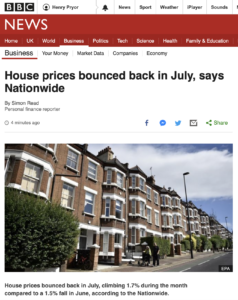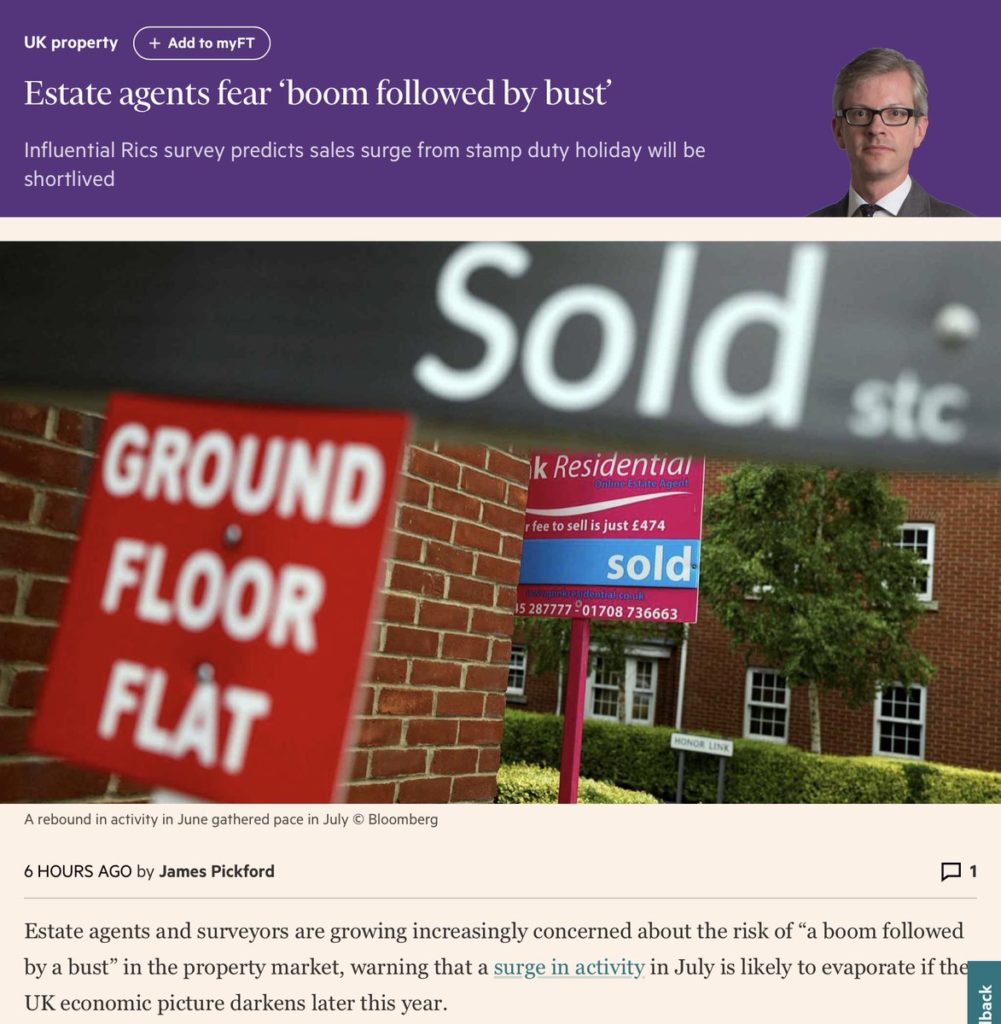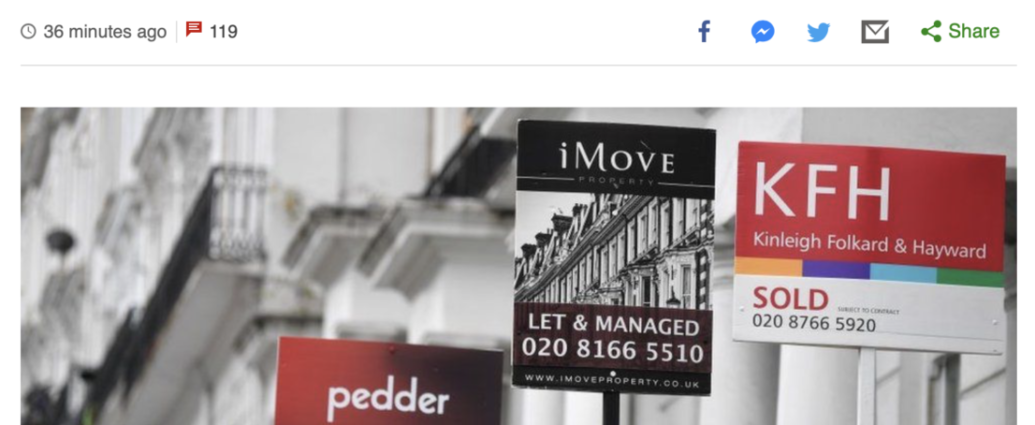
Nobody knows what’s going to happen to the housing market, to prices or to transaction volumes over the coming months and years. There are as many opinions as there are people you ask. Most optimists happen to be estate agents, conveyancers and mortgage brokers and to be fair they are on the front line and can see what’s happening at the moment. There are others who like me are concerned that personal finances as well as the nations economy will have suffered as a result of the pandemic. It seems inconceivable that the UK housing market is so robust that the biggest global shock since the Second World War isn’t going to shake it.
So what do people and organisations think and what are the pros and cons that might shape the market going forward? I’ve listed those that I know of below but please let me know if you think I have missed someone or something.
| Savills research | -7.5% |
| Savills revised forecast (Sept) | +4% |
| Knight Frank research | -7% |
| Bank of England modelling | -16% |
| Nationwide | -10% |
| Halifax | -5% |
| Lloyds Bank | -5% |
| [Lloyds Bank ‘worst case by 2022’ | -29.2%] |
| CBRE | -13% |
| Aviva | -12% |
| Garrington Homesearch | -15% |
| Strutt & Parker | -1% to -7% |
| Office for Budget Responsibility | -2.4% in 2020 -11.7% in 2021 |
| JLL | -8% |
| Resolution Foundation | -22% by Q3 in 2021 |
| Zoopla | +3% |
| EY Item Club | -3% |
| CBRE | 14% |
What might move prices up or down? Usually I argue that house prices are based on the cost and availability of credit. If people can borrow more cheaply or can borrow more then this leads to higher prices but there are other things that in 2020 in particular may impact in different ways;
- ⬆️ Stamp duty changes – which the OBR thinks might add about 2.5% to house prices
- ⬆️ “They aren’t making any more of it” – Mark Twains quote about there being finite supply has always supported house prices, it’s suggested.
- ⬆️ Lock Down fever – trapped in homes without as much as a window box means people will flee towns and cities looking for more space and a better quality of life.
- ⬆️ The rise of Working From Home – If you don’t need to be in the office two or three days a week perhaps you can move further out, so long as there is decent broadband and home deliveries, of course!
- ⬇️ Concerns from lenders – less willing to accept help from the Bank of Mum & Dad, not accepting bonuses as income and and raising the amount of deposit.
- New planning rules – means more homes might be built which could lead to more supply and lower or perhaps more affordable prices?
- ⬆️ Changes in circumstances – some folk are worried they won’t get the same mortgage offer in future as their employment status changes.
- Cashing in – a lot of people think that perhaps they can sell now while there might be a modest boom and then buy back in later, perhaps in 2021 when prices have fallen.
- ⬇️ Changes for Landlord Investors – falling rents, tax changes, new regulations all make investing less attractive to some.
- ⬆️A rush of foreign buyers – keen to beat Stamp Duty changes next April when overseas buyers will face an additional 2% Stamp Duty.
- ⬇️ Massive spike in unemployment – unemployment could hit 3m and huge numbers of people earning perhaps 80% of what they were earning in January.
- ⬆️Lack of supply – by some estimates may be 35% fewer homes for sale than usual which is propping up prices.
- ⬇️ Huge cost of the Pandemic to the Government – the Furlough scheme itself costing £10bn a month means that taxes must surely rise.
- ⬇️ Concerns for personal safety – people are reluctant to go house-hunting or to move home.
- ⬇️ Death, debt and divorce – will continue to feed the supply side, all people who ‘have’ to sell. There will be very few buyers who ‘must’ buy something in the next six months.


